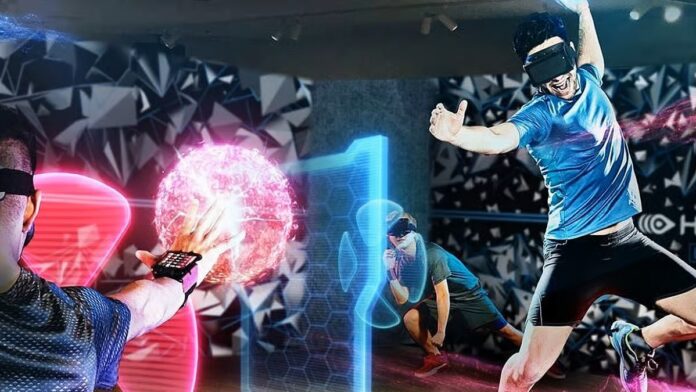In a bold and futuristic move, a Japanese high school is leveling up gym class by turning a high-energy AR game into an official part of the curriculum.
Shizuoka Nishi High School in Shizuoka City has introduced ‘Hado’, an augmented reality sport, as a way to get students more engaged in physical activity—and honestly, it sounds pretty awesome.
So, What’s Hado?
The word ‘Hado’ translates to “wave of energy,” and if you’re a gamer, it probably rings a bell thanks to iconic moves like Hadouken from Street Fighter. The game itself is a wild mix of virtual reality and real-world movement.
Here’s how it works: Two teams of three face off in 80-second matches, flinging virtual energy blasts at each other while dodging and defending. Players wear VR headsets and motion-tracking armbands, kind of like a high-tech blend of dodgeball and Dragon Ball Z.
Each player starts with four “life cells,” and the goal is to knock out your opponents by hitting all four. You can summon shields to block attacks or physically dodge blasts, all while strategizing your skill “build.”
Build Your Hero
Players have a set number of points to assign to different abilities. Want to be a glass cannon with fast, powerful blasts? Go for it. Prefer a tanky setup with strong shields? That’s an option, too. You can tailor your playstyle with a mix of fireball speed, blast size, shield strength, and energy recharge—a perfect mix of gaming mechanics and athletic movement.
A Growing Phenomenon
Hado was developed by Meleap Inc., and its CEO, Hiroshi Fukuda, says the inspiration came from his dream of shooting fireballs like anime and video game characters. Now, thanks to AR tech, that fantasy is (sort of) a reality.
The sport is rapidly gaining popularity. It’s already being played in 100 schools in Japan and 300 worldwide, with even adults getting in on the action. The Hado World Cup was just held on May 24, 2025, in Shanghai, featuring competitors from 18 different countries.
Why This Matters
Japan has seen a drop in student participation in traditional sports, while in-game spending continues to climb. By blending the appeal of gaming with real physical activity, schools hope that games like Hado can reignite interest in staying active—without forcing kids to pick between esports and exercise.
With this move, Japan is showing that the future of gym class might look a lot more like a video game—and honestly, we’re here for it.
Related News:
Overwatch Season 17 Brings Major DPS Buffs, Bastion Tweaks & Sombra Rework Plans
June Update Brings Major Difficulty Rework to First Berserker: Khazan
Call of Duty: Warzone Ranked Fix Backfires, Disrupts Leaderboards
